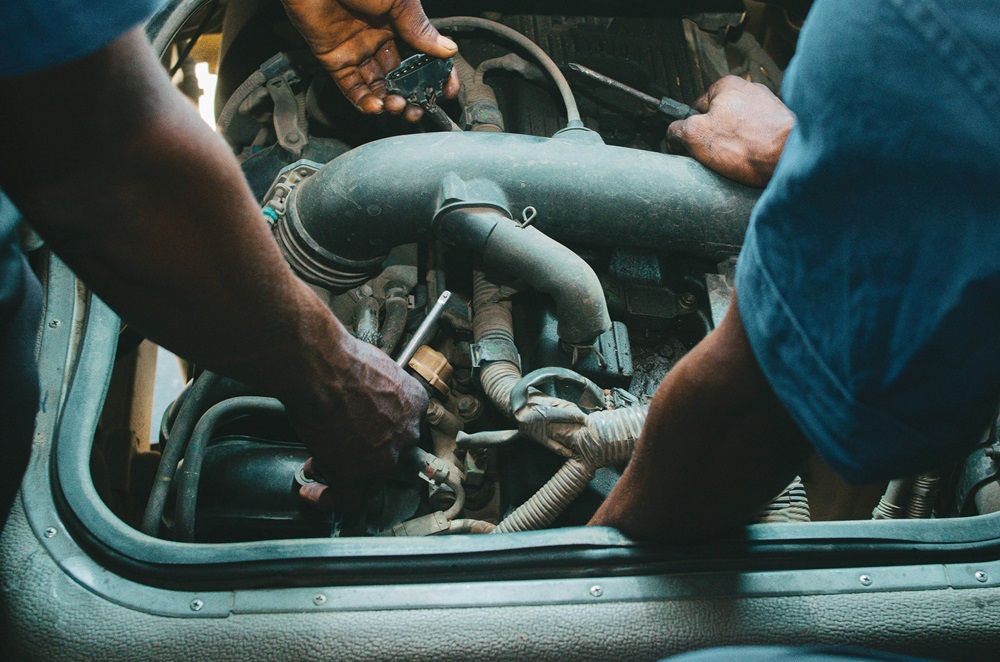What are the main responsibilities of a mechanical engineer, and how do they impact industries across South Africa? Mechanical engineers play a crucial role in various sectors, ensuring the efficient design, development, and maintenance of mechanical systems. For those exploring career opportunities or seeking to understand this profession better, Job Mail offers a comprehensive platform to connect with potential employers.
Let's delve into the key responsibilities of these professionals and the impact they have on different industries.
 Photo by cottonbro studio on Pexels
Photo by cottonbro studio on Pexels
Key Responsibilities of a Mechanical Engineer
Design and Development of Mechanical Systems
Mechanical engineers are primarily responsible for designing and developing mechanical systems. This involves creating detailed plans, blueprints, and specifications for machinery, tools, and equipment. Utilising advanced software like CAD (Computer-Aided Design) and CAM (Computer-Aided Manufacturing), these engineers ensure that the designs meet industry standards and client requirements. They also conduct feasibility studies and simulations to test the efficiency and effectiveness of these systems before they are implemented.
Research and Development (R&D)
In the field of mechanical engineering, continuous innovation is crucial. These engineers engage in research and development to create new products or improve existing ones. This responsibility includes conducting experiments, analysing data, and developing prototypes. By staying updated with the latest technological advancements, they contribute to the growth and competitiveness of various industries, including automotive, aerospace, and manufacturing.
Maintenance and Inspection
Ensuring the reliability and safety of mechanical systems is a key responsibility of mechanical engineers. They perform regular maintenance checks and inspections to identify and rectify any issues that may arise. This proactive approach helps prevent equipment failures, reduces downtime, and extends the lifespan of machinery. Mechanical engineers also develop maintenance schedules and protocols to ensure that all systems operate at optimal efficiency.
Project Management
Mechanical engineers often take on project management roles, overseeing the entire lifecycle of a project from conception to completion. This includes planning, budgeting, resource allocation, and coordinating with cross-functional teams. Effective project management ensures that projects are completed on time, within budget, and to the required standards. They must possess strong leadership and communication skills to manage teams and stakeholders effectively.
 Photo by Abasiakan on Pexels
Photo by Abasiakan on Pexels
Quality Control and Assurance
Maintaining high-quality standards is essential in mechanical. These engineers are responsible for quality control and assurance, ensuring that all products and systems meet regulatory and industry standards. This involves conducting rigorous testing, inspections, and audits. By implementing quality control measures, the engineers help maintain the integrity and reliability of products and systems, thereby enhancing customer satisfaction and trust.
Environmental and Safety Compliance
Mechanical engineers play a vital role in ensuring that engineering practices adhere to environmental and safety regulations. They design systems and processes that minimise environmental impact and promote sustainability. Additionally, mechanical engineers develop safety protocols and guidelines to protect workers and prevent accidents. Compliance with these standards not only enhances the company's reputation but also ensures the well-being of employees and the community.
Cost Estimation and Budgeting
Accurate cost estimation and budgeting are crucial for the successful execution of engineering projects. Mechanical engineers analyse project requirements, materials, labor, and other factors to prepare detailed cost estimates. They also monitor project expenditures to ensure that budgets are adhered to. Effective cost management helps optimise resources and maximise profitability, making it a critical responsibility for mechanical engineers.
Collaboration and Communication
Collaboration and communication are fundamental aspects of a mechanical engineer's role. They work closely with other engineers, technicians, and stakeholders to achieve project objectives. This collaborative approach fosters innovation and problem-solving, ensuring that complex engineering challenges are addressed effectively. Mechanical engineers must possess excellent communication skills to convey technical information clearly and concisely to non-technical stakeholders.
Understanding the key responsibilities of a mechanical engineer provides valuable insights into this dynamic profession. From designing mechanical systems to ensuring quality control and compliance, mechanical engineers play an integral role in various industries. For those interested in pursuing a career in mechanical engineering, or employers seeking qualified professionals, Job Mail offers a platform to explore opportunities and connect with top talent.





